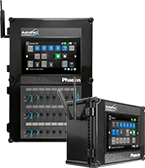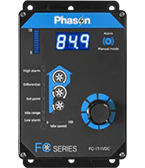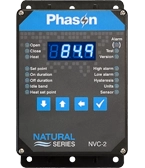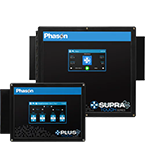Evaporative cooling systems in hog barns effectively solve key problems by addressing heat stress, reducing airborne contaminants, and promoting energy efficiency. By creating a comfortable and healthy environment for pigs, farmers can optimize energy use, reduce costs, and contribute to the overall success of hog farming operations.
Reduced heat stress
Heat stress in hog farming reduces profitability through decreased feed intake, slowed growth, increased feed expenses, and compromised reproductive performance. Evaporative cooling systems prevent heat stress by lowering ambient temperatures through water evaporation. Implementing evaporative cooling optimizes pig performance, improves profitability, and reduces feed costs while maximizing productivity.
Improved Air Quality
Evaporative cooling improves air quality in swine barns by reducing dust, ammonia, and odors. It effectively filters and removes airborne pollutants, enhancing respiratory health for pigs and farm workers. Improved air quality reduces the risk of respiratory diseases and creates a healthier environment for optimal swine production.
Dust Reduction
The evaporative cooling process involves the evaporation of water, which helps to capture and trap airborne dust particles. As water evaporates, it effectively acts as a natural filter, causing dust particles to settle down and reducing their presence in the air. This leads to a significant reduction in dust levels within the barn, creating a cleaner and healthier environment for the pigs.
Ammonia Reduction
By increasing moisture in the air, evaporative cooling systems contribute to the suppression of ammonia gas, thereby reducing its concentration. The water molecules can bind with ammonia gas, leading to the formation of ammonium hydroxide, which is less volatile and has a reduced impact on air quality compared to gaseous ammonia.
Odor Control
As water molecules evaporate, they can bind and neutralize certain odor-causing compounds, effectively reducing the intensity of unpleasant smells. This enhances the overall barn environment and creates a more pleasant working and living space for both pigs and farm workers.
Energy Efficiency and Cost Savings
Evaporative cooling is energy-efficient and cost-effective. It consumes less electricity than traditional cooling methods, leading to lower energy costs and long-term savings for hog barn owners.
Environmental Sustainability
Evaporative cooling is an eco-friendly cooling solution that uses natural water evaporation. Unlike conventional cooling methods that rely on synthetic refrigerants and emit greenhouse gases, evaporative cooling avoids ozone depletion and harmful pollutants. By choosing evaporative cooling, hog farmers can reduce their carbon footprint, promote sustainable farming practices, and demonstrate environmental stewardship.
Product Showcase
Phason has products specifically designed to help you efficiently and effectively control misting systems in your barn.
-
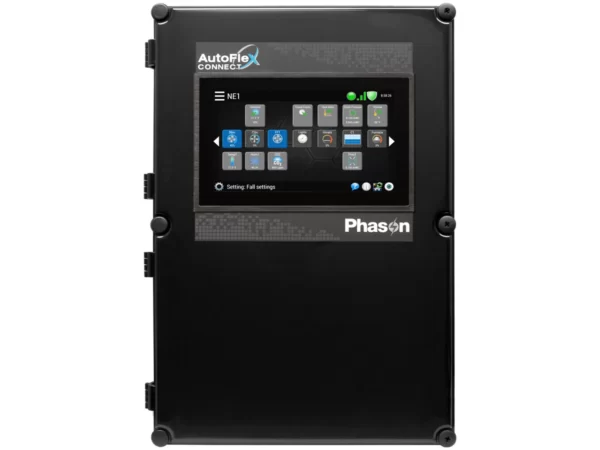
AutoFlex Connect II
Model: AFX-CONNECT2
AutoFlex Connect II brings flexibility and versatility to your fingertips. With AutoFlex Connect II, you can control and manage ventilation, supplemental cooling, heating, lighting, feeding, and more.
-
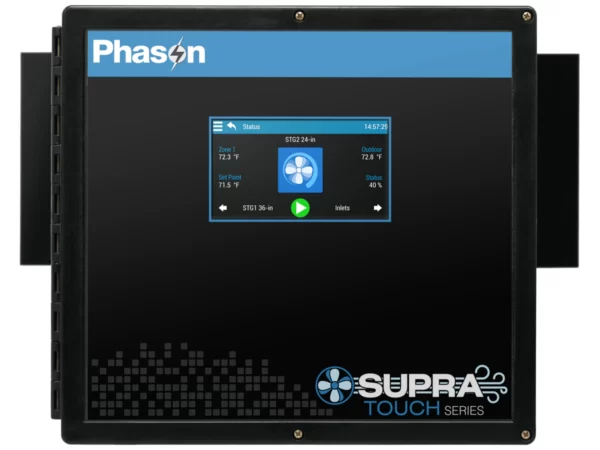
Supra Touch Series
Model: SUPRA-TOUCH
Supra Touch brings a wealth of new features that make it more powerful and more versatile.
-
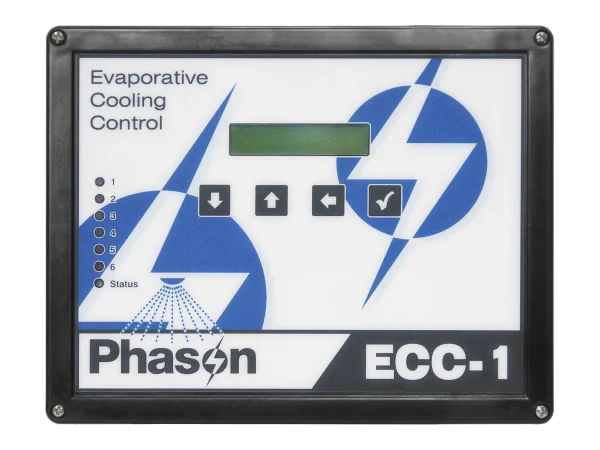
Evaporative Cooling Control
Model: ECC-1
The control monitors temperatures and efficiently and effectively controls evaporative cooling cycles according to your programmed settings.

